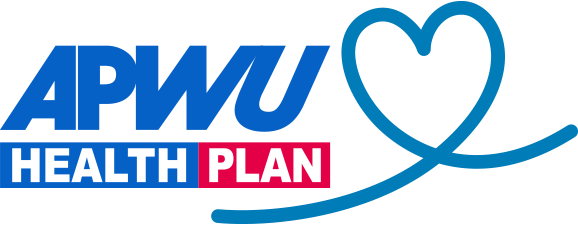Colorectal cancer is the second most common cause of death from cancer in the United States. The good news is that it usually develops slowly and is preventable. That’s why routine screenings are so important. When found early, doctors can stop colorectal cancer before it starts.
What is colorectal cancer?
Colorectal cancer often begins as abnormal growths, called polyps, in the colon or rectum. The colon is the longest part of the large intestine, while the rectum is the last several inches of the digestive system. Over time, some polyps may become cancerous. During a screening, doctors can find and remove polyps before they turn into cancer. Regular screenings can also discover colorectal cancer early, when treatment is most likely to be effective.
Unfortunately, one in three people don’t get colorectal cancer screenings as recommended.
When to start colorectal cancer screenings
Colorectal cancer can happen at any age, but most people with this type of cancer are age 50 or older. Someone could have colorectal polyps or colorectal cancer without knowing it. That’s why it’s so important to get screened for colorectal cancer.
For healthy people with an average risk of developing the disease, the U.S. Preventive Services Task Force recommends screening for colorectal cancer starting at age 50 and continuing until age 75.
If you have a family history of colorectal cancer or polyps, you may need to be screened sooner. Inflammatory intestinal conditions, such as ulcerative colitis or Crohn’s disease, can also increase your risk of colorectal cancer.
Colonoscopy is the gold standard for colorectal cancer screenings
There are different types of colorectal cancer screenings, but the colonoscopy is considered the most thorough, effective, and comprehensive exam. The test is an outpatient procedure that allows your doctor to see inside your large intestine using a flexible scope outfitted with a camera. During the procedure, your doctor can find and remove polyps before they turn into cancer.
You won’t feel a thing because you will take a mild sedative or receive pain medication through an IV to minimize any discomfort.
Preparing for a colonoscopy
Before a colonoscopy, you need to follow a special diet and follow instructions to help you get ready for the exam. Your doctor may also adjust your medications.
A colonoscopy usually takes about 30 to 60 minutes.
After the exam, you’ll need someone to bring you home because it can take up to a day for the full effects of the sedative to wear off.
If your doctor doesn’t find any polyps, you probably won’t need another screening for 10 years.
Lower your risk factors for colorectal cancer
Making simple lifestyle changes can help lower your risk factors for colorectal cancer.
1. Lose weight. Being overweight or obese increases the risk of colorectal cancer, especially in men. Excess belly fat and a large waistline are also risk factors, so avoid gaining weight around your midsection and try to maintain a healthy weight.
2. Get moving. Physical activity lowers your risk of colorectal cancer. Moderate activity (like taking the dog for a walk, vacuuming the house, or mowing the lawn) helps, but vigorous activity may have more benefits. Most adults should aim for about 30 minutes of activity, five times a week. Any amount of activity has some health benefits. If you have a busy schedule, discover ways to sneak physical activity into your daily routine.
3. Eat a healthy diet. Fill your plate with vegetables, fruits, whole grains, and lean proteins. Avoid meats (beef, pork, and lamb) and processed meats (hot dogs, sausage, and lunch meats) that may increase your risk of colorectal cancer.
4. Limit alcohol. If you choose to drink, avoid excess alcohol. Consuming too many calories, whether they’re from beer, wine, spirits, or even eating too much healthy food, can increase your belly fat and make you gain weight.
5. Quit smoking. Giving up tobacco can help lower your risk of colorectal cancer and many other types of cancer. Work with your doctor to create a plan for quitting tobacco.
Causes of colorectal cancer
You can change some lifestyle-related risk factors for colorectal cancer, but others are beyond your control. Having risk factors does not necessarily mean you will get colorectal cancer. And some people who get colorectal cancer may have no risk factors. Other potential causes of colorectal cancer include:
- Age. The risk of colorectal cancer rises as you age. Most people with the disease are older than 50.
- Racial and ethnic background. African Americans have the highest rates of colorectal cancer in the U.S. Jews of Eastern European descent (Ashkenazi Jews) also have high rates.
- Personal history. If you have a history of developing polyps, you’re at increased risk of colorectal cancer. If you had colorectal cancer in the past, you’re more likely to develop new cancers in other parts of the colon or rectum.
- History of inflammatory bowel disease (IBD). Ulcerative colitis and Crohn’s disease can increase your risk of colorectal cancer. IBD is different from irritable bowel syndrome (IBS), which does not appear to increase your risk for colorectal cancer.
- Family history. Colorectal cancer most often occurs in people without a family history of the disease. However, people with a parent, sibling, or child who had colorectal cancer are at increased risk.
Many people with colorectal cancer experience no symptoms, particularly in the early stages of the disease, so it’s important to get regular colorectal cancer screenings. If you have a high number of risk factors for colorectal cancer, ask your doctor if you should consider starting screenings before age 50.


